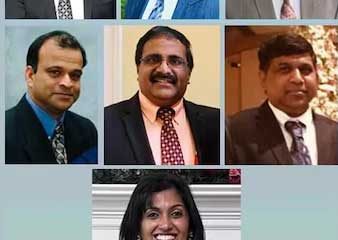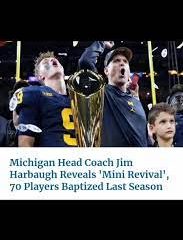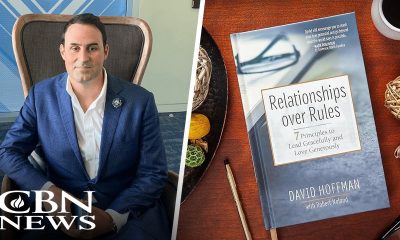Media
Recent Killings Have Indian Christians Fearful of a Deadly New Trend

In just over a month, four Christians, including a woman, a teenager, and a pastor, were killed in India because of their faith. These killings, which took place in Chhattisgarh, Jharkhand, Odisha, and Maharashtra, may indicate a deadly new trend in the persecution and violence facing India’s Christian community.
Bijay Mandavi – Chhattisgarh – May 25
The killings began on May 25 when Bijay Mandavi, a 38-year-old Christian woman, was found in the jungle near Baddi village, located in the Kondagaon district of Chhattisgarh. Mandavi’s body was partially decomposed and reportedly surrounded by street dogs when police recovered it.
“Ever since she became a Christian three years ago, she went through constant harassment and death threats,” Pastor Bupesh Salam told International Christian Concern (ICC). According to local Christians, Bijay converted to Christianity after she experienced a miraculous healing.
Despite the threats and harassment, Bijay remained steadfast in her newfound faith. She regularly attended church with her three children.
“I never thought this would happen,” Pastor Salam told ICC. Recalling a conversation with Bijay, Pastor Salam said, “About three months back, Bijay’s extended family told her that they would cut her into pieces and kill her if she didn’t give up her Christian faith. I never thought they would keep their word.”
According to Pastor Salam, the 15 Christian families of Baddi village are no strangers to persecution. Social stigma, discrimination, denial of work, and social exclusion are part of the everyday life of Christians living in the village.
In 2013, Pastor Salam was forced to leave Baddi village after a series of physical assaults. While Pastor Salam still leads the village church, he rarely travels there due to concerns for his safety and that of his family.
Sombura Madkami – Odisha – June 4
On June 4, Sombura Madkami, a 14-year-old Christian boy from Kenduguda village, located in the Malkangiri district of India’s Odisha state, was brutally murdered. Local Christian leaders claim that Sombura was murdered by fanatics who harassed Christians of Kenduguda village for years.
“On the night of June 4, a few villagers ganged up with a handful of religious fanatics, who were not part of the village, and attempted to kidnap Christians,” Pastor Kosha Mosaki told the media. The fanatics captured Sombura and the two other Christians. However, the two other Christians were able to escape their captors before they were taken to the jungle.
In the jungle, the extremists brutally murdered Sombura and buried his body to hide the crime.
However, the two other Christians who escaped notified local police and identified Deba Madkami, Budra Muchaki, Aaita Kabasi, Rabu Madi, and others involved in the abduction and murder. Upon interrogating these suspects, police located Sombura’s body.
According to Pastor Bijay Pusuru, local extremists harassed the Christians of Kenduguda for years. In the months leading up to Sombura’s murder, these fanatics threatened the Christians that they would be killed if they continued to hold church activities in the village.
According to Pastor Pusuru, Sombura refused to comply with this demand.
“God gave me a son and took him back,” Unga Madkami, Sombura’s father, told ICC. “As a father, I am shattered. Although there has been constant harassment for the last year over our practice of the Christian faith, I never expected that my son would have to pay his life for his faith.”
Kande Mudu – Jharkhand – June 7
On June 7, Kande Mudu, a 27-year-old Christian, was killed after he was dragged out of his house by extremists in Bari village, located in Jharkhand. According to Mudu’s wife, Bindu, the incident took place at 8:00 p.m. and has left her shattered.
“Whenever the phone rings, I am so scared and terrified,” Bindu told ICC. “I don’t regret our decision to follow Jesus, but losing my husband has brought so much pain and uncertainty.”
“There is nothing left for me, as my husband was my everything,” Bindu continued. “I cannot think of life without my husband. I do know, however, that I will continue to follow Jesus. Nothing more can be taken away from me.”
Munsi Thado – Maharashtra – July 10
On July 10, Pastor Munsi Thado, age 35, was murdered in the forest near Badpari village, located in the Godcharoli district of Maharashtra. According to local sources, a group of unknown people forcefully took Pastor Munsi from his house, and his wife, Rajini, later discovered his body.
As Pastor Munsi was being dragged from his home, Rajini pled for her husband to be spared. These pleas fell on deaf ears.
Pastor Munsi lived in the forest near Badpari village for the last five years due to pressure from other villagers. These villagers demanded Pastor Munsi recant his Christian faith. When he refused, they kicked him out of the village.
“He was killed because of his faith, life, and ministry to the Adivasi people in the area,” one of Pastor Munsi’s colleagues told ICC. “He led more than 20 families to Christ since he was thrown out the village by some Hindu radicals.”
A New Deadly Trend?
For many Christian across India, persecution is not a new phenomenon. However, in recent years, especially since the Bharatiya Janata Party (BJP) took power in 2014, incidents of persecution have significantly increased in number.
According to the Evangelical Fellowship of India (EFI), documented incidents of persecution have more than doubled under the leadership of the BJP. In 2014, EFI documented 147 violent attacks on India’s Christians community. In 2019, the latest data available, EFI documented 366 attacks.
In light of these recent killings, some Christians fear that a deadly new trend is emerging. Historically, incidents of persecution in India have been generally limited to physical assaults, threats, social boycotts, and the destruction of property. However, the recent killings may indicate that the severity of persecution is also increasing in addition to the frequency.
Authorities in India must take decisive action to courter this potentially emerging trend. Perpetrators must be brought to justice and victims, both on the individual and community level, must be redressed. If impunity is allowed to exist in the wake of these killings, India’s Christian communities will be vulnerable to more deadly attacks.
Sources:Persecution
Articles
The Bible was telling the truth

A recent article in Britain’s The Daily Mail suggested that the prophets Amos and Zechariah may have had something right. As the writer puts it,
“A scientific breakthrough has exposed the truth about a site in ancient Jerusalem, overturning expert opinion and vindicating the Bible’s account. Until now, experts believed a stretch of wall in the original heart of the city was built by Hezekiah, King of Judah, whose reign straddled the seventh and eighth centuries BC. … But now an almost decade-long study has revealed it was built by his great-grandfather, Uzziah, after a huge earthquake, echoing the account of the Bible.”
“… echoing the account of the Bible.” The story reminds me of a scene from a Pirates of the Caribbean movie, when a character says to Johnny Depp’s Captain Jack Sparrow, “You actually were telling the truth.” To which Captain Jack replied, “I do that quite a lot. Yet people are always surprised.”
Throughout the last century, and especially in the last few decades, the scholarly world has been “surprised” to find that the biblical authors were telling the truth. Skeptics assume that the content of the Bible is more “pious fraud” than history, a well-intentioned story to inspire the faithful. And yet the reliability of the Word of God has been repeatedly affirmed, as more biblical archaeological sites are discovered and more extra-biblical sources corroborate biblical events.
From small artifacts to larger sites, recent discoveries lend proof to biblical accounts. For example, DNA found in the City of David confirmed that the Philistines, Israel’s main enemy during the reign of King David, turned out to be exactly the sort of people the Old Testament described. A smaller discovery was of a signet ring that confirmed the detail of an Old Testament character who only gets a passing mention in 2 Kings. And, of course, there was the discovery of the site of the Pool of Siloam, where we know Jesus walked.
These findings match characters and events in the Bible to tangible, touchable, real things, a crucial confirmation for a worldview that is not esoteric but fully grounded in events that took place within human history. Luke, once written off as a fable-maker, is now considered by most scholars to be an excellent and precise historian. Though online atheists may continue to insist that Jesus never existed, no reputable biblical scholar would support this theory. To paraphrase Mark Twain’s preemptive obituary, rumors of the Bible’s inaccuracies have been greatly exaggerated.
Of course, the Bible is a more comfortable book if only merely “spiritually” true and not really true. This is the sort of thinking that has both shaped and sapped the strength of liberal Christianity, such as is found in many mainline denominations. Once giants in American Christianity, most are now mere husks of their former glories, with increasingly empty churches that have dropped all the doctrine but kept the robes and collars of their now rainbow-accented vestments.
The Bible, however, doesn’t offer the option of just believing the comfortable stuff. It demands to be taken as fact or not at all, while making claims about real times and real places, about real people and real things. Most notably, it claims that the God revealed in its pages intruded Himself into the grit and grime of our fallen world in a way that can now be found by archaeological discoveries. If the God of the Bible is indeed God, He is the God of the real world.
It should comfort that what God has given to us in the Bible is true. Thus, it can be trusted in all that it promises, whether about the past, the present, or the future.
Sources:Christian Post
Media
ചൈനയും ഉത്തരകൊറിയയും അടക്കം ചില രാജ്യങ്ങൾ വാട്സ്ആപ്പ് നിരോധിച്ചിട്ടുണ്ട്! കാരണമറിയാമോ?

വാട്സ്ആപ്പ് ലോകമെമ്പാടുമുള്ള ഏറ്റവും ജനപ്രിയ സന്ദേശമയക്കൽ ആപ്ലിക്കേഷനുകളിൽ ഒന്നാണ്. രണ്ട് ബില്ല്യണിലധികം ഉപയോക്താക്കൾ വാട്സ്ആപ്പിനുണ്ട്. എന്നാൽ ചില രാജ്യങ്ങളിൽ വാട്സ്ആപ്പ് നിരോധിച്ചിരിക്കുകയാണ്. ഇത്തരം നിരോധനങ്ങൾക്ക് പിന്നിലെ കാരണങ്ങൾ എന്തൊക്കെയാണെന്ന് നോക്കാം.
വാട്സ്ആപ്പ് നിരോധിച്ച രാജ്യങ്ങൾ:
* ചൈന: ചൈനയിൽ സർക്കാർ കർശനമായ ഇന്റർനെറ്റ് നിയന്ത്രണങ്ങൾ നടപ്പിലാക്കുന്നുണ്ട്, ഇതിനെ ‘ഗ്രേറ്റ് ഫയർവാൾ’ (Great Firewall) എന്ന് വിളിക്കുന്നു. വിദേശ സോഷ്യൽ മീഡിയ പ്ലാറ്റ്ഫോമുകളും മെസേജിംഗ് ആപ്പുകളും ഉൾപ്പെടെ നിരവധി വെബ്സൈറ്റുകളും ആപ്പുകളും ഈ ഫയർവാൾ വഴി തടയുന്നു. ചൈനയിൽ അവരുടേതായ നിയന്ത്രണ സംവിധാനങ്ങളുള്ള സെൻസർ ചെയ്ത സോഷ്യൽ മീഡിയ പ്ലാറ്റ്ഫോമുകളും മെസേജിംഗ് ആപ്പുകളും ഉപയോഗിക്കാൻ ആളുകളെ പ്രോത്സാഹിപ്പിക്കുക എന്നതാണ് ഒരു കാരണം.
* ഉത്തരകൊറിയ: ലോകത്തിലെ ഏറ്റവും നിഗൂഢമായ സമൂഹങ്ങളിലൊന്നാണ് ഉത്തരകൊറിയ. സർക്കാർ വിവരങ്ങളുടെ നിയന്ത്രണത്തിൽ വളരെ കർശനമാണ്. പുറത്തുള്ള ലോകവുമായുള്ള ആശയവിനിമയം പരിമിതപ്പെടുത്തുന്നതിനാണ് വാട്സ്ആപ്പ് പോലുള്ള ആപ്പുകൾ നിരോധിച്ചിരിക്കുന്നത്.
* ഇറാൻ: രാജ്യത്തെ അസ്ഥിരതയുടെ സമയങ്ങളിൽ ഇറാൻ അടക്കിടെ വാട്സ്ആപ്പ് താൽക്കാലികമായി നിരോധിച്ചിട്ടുണ്ട്. സർക്കാർ വിരുദ്ധ പ്രവർത്തനങ്ങൾക്കും പ്രചരണങ്ങൾക്കും വാട്സ്ആപ്പ് ഉപയോഗിക്കുന്നത് തടയാനാണ് ഇത്.
യുഎഇയിലും ഖത്തറിലും വാട്സ്ആപ്പ് കോളുകൾ തടഞ്ഞിട്ടുണ്ട്. ടെലികോം കമ്പനികളുടെ വരുമാനം വർദ്ധിപ്പിക്കാനാണ് ഇതെന്നാണ് പറയുന്നത്. വാട്സ്ആപ്പ് നിരോധിക്കുന്നതിന് പിന്നിലെ കാരണങ്ങൾ രാജ്യങ്ങൾക്കനുസരിച്ച് വ്യത്യസ്തമാണ്. ചില സർക്കാരുകൾ വിവരങ്ങളുടെ നിയന്ത്രണവും സെൻസർഷിപ്പും നടപ്പിലാക്കാനാണ് ഇത് ചെയ്യുന്നത്. മറ്റുള്ളവർ ദേശീയ സുരക്ഷാ ആശങ്കകളോ ടെലികോം വരുമാനം വർദ്ധിപ്പിക്കാനുള്ള ശ്രമങ്ങളോ ആയിരിക്കാം കാരണം. അതേസമയം ഈ നിയന്ത്രണങ്ങൾ മറികടക്കാൻ വിപിഎൻ പോലുള്ളവ ഉപയോഗിക്കുന്നവരുമുണ്ട്.
Sources:azchavattomonline.com
Articles
8 ways the Kingdom connects us back to the Garden of Eden

When Jesus came as the last Adam (1 Corinthians 15:45), He announced the good news of the Kingdom of God (Mark 1:14). What is the Kingdom of God? The rule of God emanates from the throne of God in Heaven. Hence, the Kingdom of God rules over all of creation (Psalm 22:28; 24:1; 103:19).
Consequently, when Jesus announced that the Kingdom of God was at hand (Matthew 4:17), He declared that restoring the created order back under His rule as it was in the Garden of Eden (before the fall) was now inaugurated.
We see themes relating to the work of restoration to Eden throughout Scripture (Isaiah 11:6-9; 51:3; 65:17-25; Ezek. 36:34-36; Romans 8:19-21; Rev. 21:1-5).
In light of this, we see that the Gospel of the Kingdom of God is related to the reconciliation of the world, not merely to individual sinners (2 Corinthians 5:19).
The following are eight ways the Kingdom of God is connected to the Edenic state.
1. Through work
God’s first act after creating Adam was to put him in a garden to work and keep it (Genesis 2:15). Even before Adam had a family, he worked unto the Lord. (Hence, using our abilities to work is not merely to provide for our family but is an act of worship since we are reflecting Yahweh who worked for the six days of creation.)
Consequently, Paul the apostle commands the Church to work and to be a blessing to others (Ephesians 4:28; 1 Thessalonians 4:11). Paul even declares that if a man does not work, he should not eat! (2 Thessalonians 3:10)
Thus, Christians are called to work and plant the Garden of the Lord as part of our Christian witness that the Kingdom of God is at hand.
2. Through God’s provision
God planted humanity in a lush garden with enough to sustain it even before Adam worked. Humans did nothing to earn what we were born into, yet God provided everything we needed for sustenance through His grace.
Consequently, continuing to receive divine provision is one way the Church manifests the Kingdom of God to the rest of the world.
3. Through holy matrimony
God joined one man and one woman to be “one flesh” as the foundation of civilization (Gen. 2:21-24). Before there was human government, there was marriage. Thus, His Kingdom influence started with biblical marriage.
Also, the fact that God made binary gender to represent His nature implies that it takes both male and female to transmit the image of God to the next generation (Genesis 1:27). Hence, two men and two women cannot fully transmit the image of God to the next generation.
The main reason why Satan distorted biblical marriage with alternative forms of family as well as through the proliferation of pornography and divorce, is to prevent the complete image of God from being transmitted to the next generation.
Consequently, when Christians live faithfully together in holy matrimony and raise their children in the Lord, they plant the Garden of the Lord and manifest His Kingdom in the world.
4. Through defining reality
God brought the animals of the earth to Adam so he could name them (Genesis 2:19-20). As God’s vice-regent, it was up to Adam to name and define reality. Thus, whoever defines a thing can categorize and frame the perspective of that entity.
This is why there is an ideological push to reframe biblical symbols such as the rainbow and to redefine biblical concepts such as marriage, gender, human sexuality, and social justice (Genesis 9:13).
The rainbow symbolizes God’s promise to Noah that He would never again destroy the earth with a flood (Genesis 9:13-17). Today, the rainbow is widely recognized as a symbol of the LGBTQ+ community, representing diversity and inclusion.
Marriage
Historically, marriage has been defined as a union between one man and one woman. Many societies now recognize same-sex marriages and broader definitions of partnerships and unions.
Gender
Gender was traditionally understood as strictly male or female, based on biological sex.
The concept of gender has expanded to include a spectrum of identities beyond the binary male and female, such as non-binary, pansexual and genderfluid.
Woke
The connotation of the traditional meaning had to do with a conversion experience in which a person’s eyes were opened, and they were turned from darkness to light, which is why the term “awakening” was used to describe masses of people coming to Christ (Acts 26:18). Now ”woke” has been hijacked to describe people who ascribe to the far left (woke) ideology. Consequently, the Church is called to function as cultural creatives who define reality for society in a way that aligns with the Kingdom of God.
5. Through cultivation
Adam was called to cultivate the Garden of the Lord and subdue the rest of the earth (Genesis 1:28). Similarly, believers are called to plant systems and create art that reflect the beauty of the Lord as depicted in the Garden of Eden for human flourishing.
6. Through multiplication
As God created the world with the ability for every living thing to multiply (Genesis 1), the Ephesians 4:11 ministry gifts were called to equip people who can multiply biological families, churches, and businesses, so the seeds of the Garden of the Lord will eventually fill all things (Ephesians 4:10-12)
7. Through stewardship
As God called Adam to steward the created order, God has called the church to nurture people capable of managing their families, churches, and businesses and to produce Christ-followers capable of stewarding leadership in society for the glory of God.
8. The ‘tree-centric’ world on the 8th day
The Tree of Life was in the midst of the Garden of Eden (Genesis 2:9). Christ’s death, burial, and resurrection created a “Tree-Centric” world since the cross (tree) of Christ became the Tree of Life that brought healing and reconciliation back to the created order (I Peter 2:24). Since Jesus rose on the 8th day, this also represented new beginnings regarding the process of the renewal of all things.
Consequently, as Christ-followers live a cross-shaped life, they will be His agents of healing that plant the garden of the Lord as an oasis of hope amid broken cities.
Sources:Christian Post
-

 us news11 months ago
us news11 months agoനോര്ത്ത് അമേരിക്കന് പെന്തക്കോസ്തല് റൈറ്റേഴ്സ് ഫോറം; അറ്റ്ലാന്റാ ചാപ്റ്ററിന് പുതിയ ഭാരവാഹികള്
-

 National11 months ago
National11 months agoബൈബിൾ വിതരണം ചെയ്യുന്നതും നല്ല മൂല്യങ്ങൾ പഠിപ്പിക്കുന്നതും മതപരിവർത്തനമല്ല: അലഹബാദ് ഹൈക്കോടതിയുടെ നിര്ണ്ണായക വിധി
-

 world news10 months ago
world news10 months ago50 രാജ്യങ്ങളിലേക്ക് കുവൈത്ത് പൗരന്മാർക്ക് വിസയില്ലാതെ സഞ്ചരിക്കാം
-

 National5 months ago
National5 months agoനെയ്തേലിപ്പടി ക്രൂസേഡിന് അനുഗ്രഹീത സമാപ്തി
-

 Life11 months ago
Life11 months agoസൂര്യനെ ലക്ഷ്യമിട്ട് കുതിച്ച് ആദിത്യ എൽ1; ഇന്ത്യയുടെ ആദ്യ സൗരദൗത്യം വിജയകരം
-

 National9 months ago
National9 months agoPentecostal mission center demolished in India; pastor, 17 others arrested
-

 Life10 months ago
Life10 months agoമനുഷ്യന് താമസിക്കാന് ചന്ദ്രനില് വീടുകള്; നാസ 3ഡി പ്രിന്ററുകള് ചന്ദ്രനിലേക്കയക്കും
-

 Sports6 months ago
Sports6 months agoMichigan Head Coach Jim Harbaugh Reveals ‘Mini Revival’, 70 Players Baptized Last Season
























